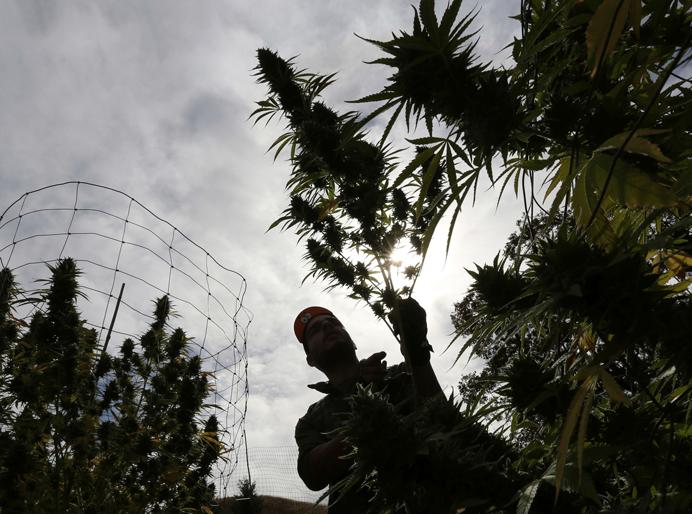By Logan Pillard
Attorney General Jeff Sessions seems determined to resurrect the failed War on Drugs after his latest appointment of proud cannabis condemner Steven Cook as one of his top commanders. The Justice Department has turned a blind eye to public opinion, however; 60 percent of Americans say they favor the legalization of marijuana, according to a recent Gallup Poll. Iowans need only to look to their home state to witness the ignorance toward the American people, as Iowa officially enters the minority of states that still strongly criminalize marijuana.
States across the nation have made legislation undoing the poisonous effects the War on Drugs has had on our criminal system, including almost all of Iowa’s neighboring states: Illinois, Minnesota, Nebraska, and Missouri. Twenty-eight states have legalized the use of medical marijuana, as well as eight states that have legalized recreational use of the drug.
Those states reap the benefits of their progressive decisions. In 2016, Colorado brought in $140 million in tax revenue from marijuana sales and saved the state’s Justice Department an estimated $40 million in its first year of legalization. The Drug Policy Alliance released a report in late 2016 detailing the effects legal marijuana had on these states, including an increase in revenue from taxes, decrease in reported DUIs, and virtually no change in underage use. Meanwhile, Iowa faces mass budget cuts across departments, nearly $500 million spent on incarceration, and the state hosts one of the highest reported drunk-driving percentages in the country. In a 2012 report, the Des Moines Register reported on June 23, 2016, 3.1 percent of Iowa adults said they had driven drunk in the previous 30 days.
Iowa’s current drug laws reflect those put in place more than 30 years ago at the height of the War on Drugs. First-time offenders face $1,000 in fines and up to six months in prison for simply possessing any marijuana. As was the main purpose of the War on Drugs, Iowa’s prisons are over-proportionately filled with African Americans. While African Americans account for only 3.1 percent of Iowa’s population, they make up 25.8 percent of prison inmates. In Iowa, African Americans are 11 times more likely to be charged than whites, according to a study released last June by The Sentencing Project. But this was the exact purpose of the War on Drugs: to criminalize both African Americans and the antiwar left, both an opposition to the Nixon administration.
Despite its archaic stance on cannabis, Iowa has been at the forefront of social and political progression throughout its history. As a young territory and soon-to-be-state, Iowa led the nation in civil liberties, providing freedom to any slave stepping foot on its soil and later legalizing interracial marriage, nearly 100 years before the rest of the country. The University of Iowa became the first state university in the nation to welcome women to its campus, and in 2009, Iowa legalized same-sex marriage.
A hope for drug reform may be on the horizon in Iowa, however. In February, a bill was introduced in the Iowa House of Representatives that would expand the state’s medical-marijuana program by increasing the number of conditions that permit the use of cannabis as well as introduced the production of medicinal cannabis oil, effectively eliminating the need for patients to cross state borders to obtain the product, breaking federal law. While this seems like a small step compared with the great strides taken by states across the nation, it is my hope, as a proud Iowan, that the Hawkeye State will soon catch up to the rapid growth of the American Cannabis Movement.



